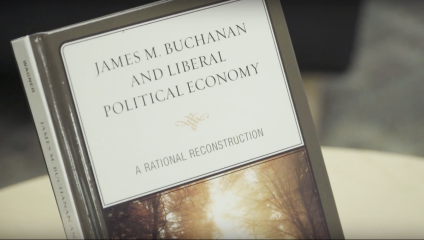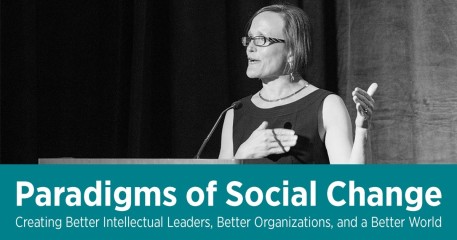- | F. A. Hayek Program F. A. Hayek Program
- | Expert Commentary Expert Commentary
- |
An Invitation to Inquiry
Austrian Economics as an Enduring and Progressive Research Program
Over the past few weeks, the F. A. Hayek Program for Advanced Study in Philosophy, Politics, and Economics has released lectures by contemporary thinkers in Austrian economics on our podcast. Collectively, these lectures explore the continuing relevance of the Austrian school of economics as a progressive research program in contemporary economics and political economy.
First, Bruce Caldwell (Director, Center for the History of Political Economy, Duke University) discusses the differences between mainline and mainstream economics as well as the unorthodox areas of research that can be explored using the enduring framework of mainline economics. Second, Christopher Coyne (Associate Director, F. A. Hayek Program) uses this framework to explore the challenges associated with foreign intervention and international development. Third, Lawrence H. White (Distinguished Senior Fellow, F. A. Hayek Program) advances Austrian economics within modern macroeconomic theory. Fourth, Jayme Lemke (Senior Fellow, F. A. Hayek Program) explores women’s rights through a political economy lens in order to understand how the law severely limited women’s ability to own, obtain, and enforce private property rights and how that changed in the early 20th century.
In episode five, Emily Chamlee-Wright (President and CEO, Institute for Humane Studies at George Mason University) discusses the various cultural themes that connect culture to Austrian economics. Sixth, Roger Koppl (Professor of Finance, Syracuse University) discusses the epistemics and co-evolution of the division of knowledge and the division of labor. And lastly, Mario Rizzo (Co-Director, Classical Liberal Institute, New York University School of Law) explains how a hierarchical application of rules can facilitate efficient decision making in a world of uncertainty.
Today we have an Austrian tradition that is bright, vibrant, and pluralistic. Indeed, these individuals demonstrate through their work that Austrian economics is alive and well.
The scholars featured in these podcasts are all operating at the frontiers of research in Austrian economics. Likewise, most are cultivating communities of intellectually curious researchers pursuing research of consequence at university-based research centers around the United States. As evidenced by my amazing colleagues and friends, we see expansive scope to the research opportunities in Austrian economics, including empirical work, theoretical work, and applied political economy work.
This is an invitation to an intellectual adventure. Whether that adventure takes you in the direction of exploring the fundamentals of social scientific theorizing or to applying a framework to real world social issues, if you are interested in studying Austrian economics, these lectures show that the tradition is open and full of promise for anyone looking to advance our social scientific understanding of the ideas, values, institutions, forms of organization, and social processes that support peaceful, cooperative, and prosperous self-governing societies. Onward and upward!
To learn more about the F. A. Hayek Program, visit hayek.mercatus.org and sign up here to receive updates on Hayek Program research and events.
If you would like to take a step further, you can read here about the fellowships and other opportunities available to study political economy through the Mercatus Center.
Peter J. Boettke is the vice president and director of the F. A. Hayek Program for Advanced Study in Philosophy, Politics, and Economics at the Mercatus Center as well as the BB&T Professor for the Study of Capitalism and a University Professor of Economics and Philosophy at George Mason University. He specializes in Austrian economics, economic history, institutional analysis, public choice, and social change.


